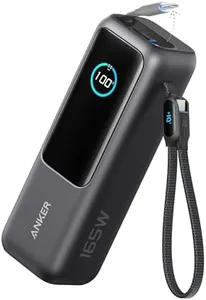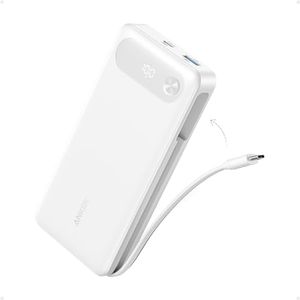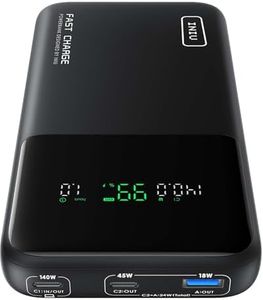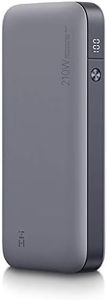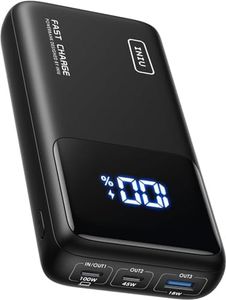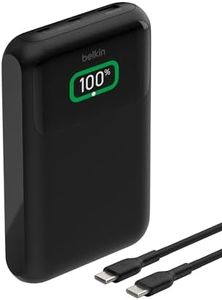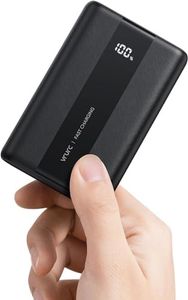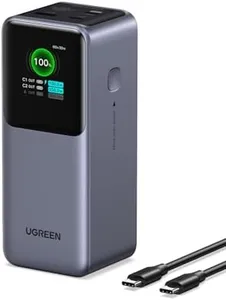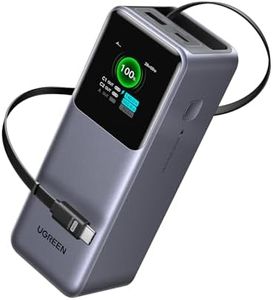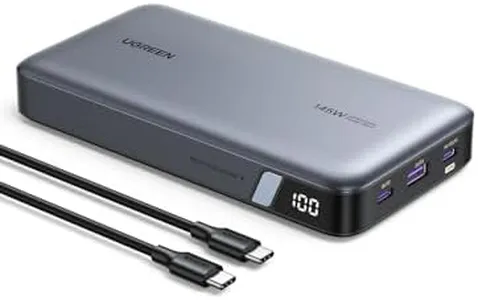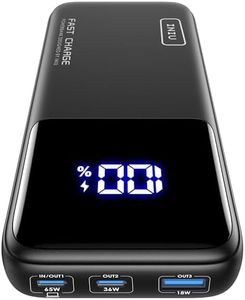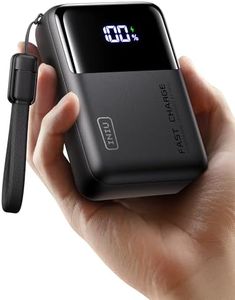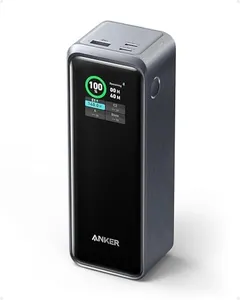We Use CookiesWe use cookies to enhance the security, performance,
functionality and for analytical and promotional activities. By continuing to browse this site you
are agreeing to our privacy policy
10 Best Portable Laptop Chargers
From leading brands and best sellers available on the web.By clicking on a link to a third party's website, log data is shared with that third party.
Buying Guide for the Best Portable Laptop Chargers
Buying a portable laptop charger, also known as a power bank for laptops, can make your life a lot easier when you're often on the move or working far from a power outlet. Instead of stressing over low battery warnings, a portable charger lets you keep your laptop running anywhere. When choosing the right one, it's important to focus on the main specifications that affect compatibility, performance, and portability. Understanding a few key specs will help you find a charger that meets your needs and fits your lifestyle.Battery Capacity (mAh or Wh)The capacity of a portable laptop charger tells you how much energy it can store, usually measured in mAh (milliampere-hours) or Wh (watt-hours). A higher capacity means the charger can power your laptop for longer or give it more full charges before it needs to be recharged itself. Small capacity (10,000–20,000 mAh) chargers are lighter and easier to carry, but might only provide one partial or full charge for compact laptops or tablets. Medium capacity (20,000–30,000 mAh) gives more flexibility and is suitable for one or two full laptop charges. High capacity (30,000 mAh and above) are bulkier, but can fully charge most laptops more than once or support heavier use. To pick the right capacity, consider how often and how long you’ll be away from power outlets, and check how much your laptop battery holds to estimate what you need.
Output Power (Wattage)Output power, usually shown in watts (W), is about how much charging strength the portable charger can deliver to your laptop. Laptops usually require more power than smaller devices, and if the charger can't provide enough, it might charge slowly or not at all. Lower output (under 30W) tends to be enough for tablets or small, low-power laptops. Medium output (30-60W) covers most ultrabooks or mid-range laptops, while higher output (over 60W) is ideal for demanding devices like gaming or professional laptops. To pick the right wattage, check your laptop’s original charger or documentation for its charging needs, and match or exceed that number with the portable charger for reliable performance.
Charging Ports and CompatibilityPortable laptop chargers come with different types and numbers of output ports. Many modern laptops use USB-C PD (Power Delivery), but some still require DC barrel plugs or proprietary connections. Having the correct port and support for your laptop's charging standards is critical for safety and function. Some chargers have multiple ports, letting you charge both your laptop and smaller devices at once, but this can split available power. Think about what types of devices you want to charge and check what ports they require. Make sure the charger supports your laptop’s port and protocol, and look for flexibility if you need to charge more than just your laptop.
Size and WeightThe physical size and weight of a portable laptop charger influence how easy it is to carry around. Slim, lightweight chargers are easy to slip in a bag and perfect for travelers or commuters, but might have less capacity. Larger, heavier chargers may offer more power, but can be cumbersome for everyday carry. Consider how you plan to use the charger—if you only need backup power occasionally, choose a lighter model for convenience, but if you’ll be working away from outlets for long periods, the additional size may be worthwhile for more capacity.
Recharge TimeRecharge time tells you how long the portable charger itself takes to become fully recharged. Faster recharge means less downtime between uses. Chargers with quick recharge features usually have better input ports (like USB-C PD or dedicated fast chargers) and higher wattage input. Shorter recharge times (under 4-5 hours) are convenient if you often forget to charge in advance, but may require a higher-quality wall charger. If you use the charger frequently, a faster recharge is helpful, while occasional users can manage longer recharge times.
Safety FeaturesGood portable laptop chargers have built-in safety features like overcharge, overcurrent, short circuit, and temperature protection to prevent damage to your devices and the charger. These features protect your laptop from unexpected power spikes or overheating. For peace of mind, especially with expensive laptops or when charging in transit, look for chargers that clearly state their safety protections. If you travel often or charge unattended, safety features are even more important.
